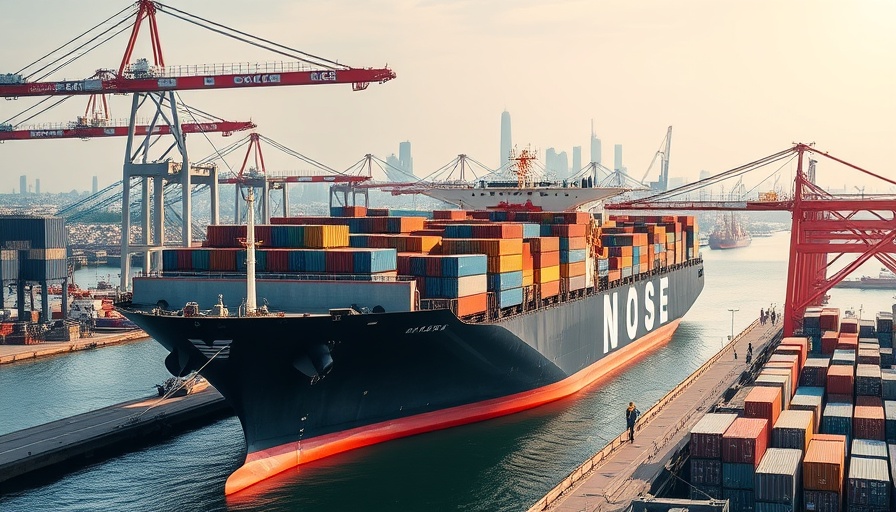
The Steady Hand in Uncertain Times: Tariffs Under Trump
As the U.S. grapples with market volatility, Trump administration officials stand resolutely behind their tariff policies. Despite recent turmoil, they maintain that tariffs are essential for safeguarding American industries and jobs. This bold stance reveals a deeper growth strategy aimed at increasing operational efficiency within the manufacturing sector.
Understanding the Background of Tariff Policies
Historically, tariffs have been tools for protectionism, safeguarding local economies from foreign competition. They aim to encourage consumers to buy American-made goods, theoretically leading to job preservation and creation. The Trump administration's assertive approach towards tariffs not only influences trade but also impacts franchise operations, compelling businesses to adapt their strategies in response.
Social Impact: Why Tariffs Matter
Franchisors need to understand that tariffs affect more than just costs; they ripple through the economy affecting consumer prices and demand. As businesses re-evaluate their supply chains to mitigate tariff impacts, franchisees may face new pressures to optimize their operational efficiency. Although beneficial for U.S. manufacturers, these policies present a double-edged sword that can inflate costs for franchisors relying on imported goods.
Future Predictions: Navigating Ongoing Trade Challenges
Analysts predict that the current tariff landscape will not shift quickly. As U.S. officials double down on tariffs, franchises will need to prepare for prolonged adjustments. By investing in technology that streamlines operations and enhances efficiency, franchisors can mitigate the effects of rising costs and adapt to changing market dynamics.
Actionable Insights for Franchisors
One significant takeaway for franchisors is to assess their supply chains critically. Identifying areas where costs can be reduced or where local sourcing can be increased will be vital. Additionally, exploring technology solutions—like inventory management software and data analytics tools—can help improve performance metrics and maintain brand consistency across locations amidst changing economic conditions.
Building Resilience Through Adaptation
Adaptability is key in the franchising world, especially in challenging economic times. Tariff-induced pressures can force businesses to become more innovative. By focusing on operational excellence, franchises can not only comply with economic shifts but also thrive in adversity, ensuring their longevity and success.
In conclusion, while tariff policies may seem distant from day-to-day franchising operations, their impact is far-reaching. Franchisors must remain informed, agile, and ready to adapt to not only survive but thrive in a challenging economic environment. Understanding these dynamics will empower franchisors to make decisive and informed choices moving forward.
Join the Conversation about Tariff Impact on Franchises!
Want to stay ahead of the game concerning tariffs and their impact on franchises? Join our network and engage with fellow franchisors who are navigating these changes. Learn strategies that can enhance your franchise and maintain brand consistency across all locations.
 Add Row
Add Row  Add
Add 




Write A Comment